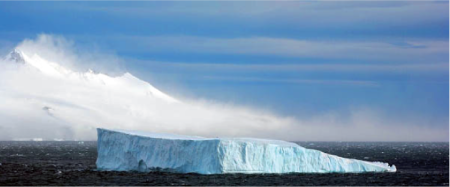| SEARCH |
-

Nov 17, 2015
Reflections on a three-decade legacy
The International Geosphere-Biosphere Programme (IGBP) will come to a close at t...
-
Nov 17, 2015
Use of and access to content on this website
Text and images produced by IGBP in house are free to use with appropriate credi...
-
Nov 12, 2015
Bella Gaia performance and panel discussion to mark IGBP's closure
A musical performance by Bella Gaia will celebrate the achievements and legacy o...
-

Towards Future Earth:
evolution or revolution?
During its three decades of existence, the International Geosphere-Biosphere Pro...
-
A personal note on IGBP and the social sciences
Humans are an integral component of the Earth system as conceptualised by IGBP. João Morais recalls key milestones in IGBP’s engagement with the social sciences and offers some words of advice for Future Earth.
-
IGBP and Earth observation:
a co-evolution
The iconic images of Earth beamed back by the earliest spacecraft helped to galvanise interest in our planet’s environment. The subsequent evolution and development of satellites for Earth observation has been intricately linked with that of IGBP and other global-change research programmes, write Jack Kaye and Cat Downy .
-
Deltas at risk
Around 500 million people worldwide live on deltas, but many of the world's deltas are sinking due ...
-
Climate change: the state of the science
A new data visualization released on the first day of the plenary negotiations at the UNFCCC’s clima...
-
Climate Change:
the State of the Science
Videos now online from the Stockholm public forum to mark the launch of the IPCC's climate report, 2...
Impact of climate change on long-term zooplankton biomass in the upwelling region of the Gulf of Guinea
Wiafe G, Yaqub H B, Mensah M A and Frid C L
Vol 65; Issue 3; pp. 318-324.

We investigated long-term changes in coastal zooplankton in the upwelling region in the Gulf of Guinea, 1969–1992, in relation to climatic and biotic factors. We considered the role of hydrographic and climatic factors, i.e. sea surface temperature (SST), salinity, sea level pressure, windfield, and Southern Oscillation Index (SOI), in the long-term variation of zooplankton in a multiple regression analysis, along with the abundance of Sardinella. Annual variation in zooplankton biomass was cyclical, with the annual peak occurring during the major upwelling season, July–September. Over the 24-year period, there was a downward trend in zooplankton biomass (equivalent to 6.33 ml per 1000 m3 per year). The decomposed trend in SST during the major upwelling revealed gradual warming of surface waters. This trend was believed to be the main influence on the abundance of the large copepod Calanoides carinatus (sensitive to temperatures above 23°C), which appears in the coastal waters only during the major upwelling season. The warming trend associated with global climate change could affect zooplankton community structure, especially during the major upwelling season. Global warming coupled with “top–down” (predation) control by Sardinella might be responsible for the long-term decline in zooplankton biomass in the upwelling region of the Gulf of Guinea.

IGBP closed at the end of 2015. This website is no longer updated.
-

Global Change Magazine No. 84
This final issue of the magazine takes stock of IGBP’s scientific and institutional accomplishments as well as its contributions to policy and capacity building. It features interviews of several past...
-

Global Change Magazine No. 83
This issue features a special section on carbon. You can read about peak greenhouse-gas emissions in China, the mitigation of black carbon emissions and the effect of the 2010-2011 La Niña event on gl...
-
INTERGOVERNMENTAL PANEL ON CLIMATE CHANGE:
How green is my future?
UN panel foresees big growth in renewable energy, but policies will dictate just how big.
-
UK:
'The Anthropocene: a new epoch of geological time?'
Royal Society, Philosphical Transactions A




















